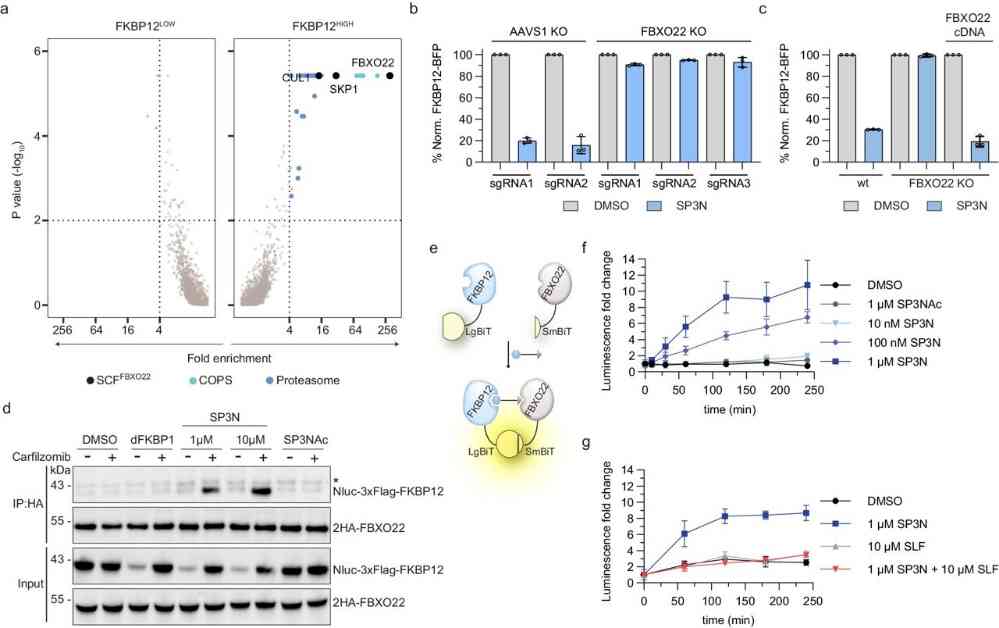Targeted protein degradation is a promising approach to removing disease-causing proteins from cells. This process involves connecting the protein to be degraded with a ubiquitin ligase, of which there are around 600 in the human body. However, only two ligases have been successful in clinical applications so far, leading to limitations in treatment options and potential resistance development, especially in cancer therapy.
A recent study by researchers at CeMM led by Georg Winter has identified a new adapter molecule, SP3N, that recruits a previously unused E3 ligase named FBXO22 for targeted protein degradation. This discovery opens up new possibilities for expanding the range of medical applications and developing more effective therapies, particularly in cancer treatment.
The unique mechanism of action of SP3N involves a small molecule that contains a ligand and an alkylamine chain ending with a nitrogen compound. This molecule can chemically bind to the E3 ligase FBXO22, facilitating the degradation of target proteins. Unlike traditional PROTACs, SP3N is significantly smaller, providing advantages for further development and potential tissue-specific targeting.
The high expression of FBXO22 and its metabolizing enzymes in various tumor types offers the opportunity to target protein degradation specifically to cancer cells, potentially increasing treatment efficacy while minimizing side effects on healthy tissues. This innovative approach represents a significant advancement in the field of targeted protein degradation and holds promise for the development of novel therapeutic strategies.
The findings of this study, published in Nature Communications, shed light on a new class of agents for targeted protein degradation and highlight the importance of exploring alternative E3 ligases for more effective and precise treatments. By expanding the toolkit of ligases available for targeted protein degradation, researchers are paving the way for improved therapies and better outcomes for patients with various diseases, including cancer.
Overall, the discovery of the SP3N adapter molecule and its ability to recruit the FBXO22 ligase represents a significant step forward in the field of targeted protein degradation. This research not only expands the potential of the cell’s waste disposal system but also offers new opportunities for developing innovative and more tailored treatment approaches in the future.
